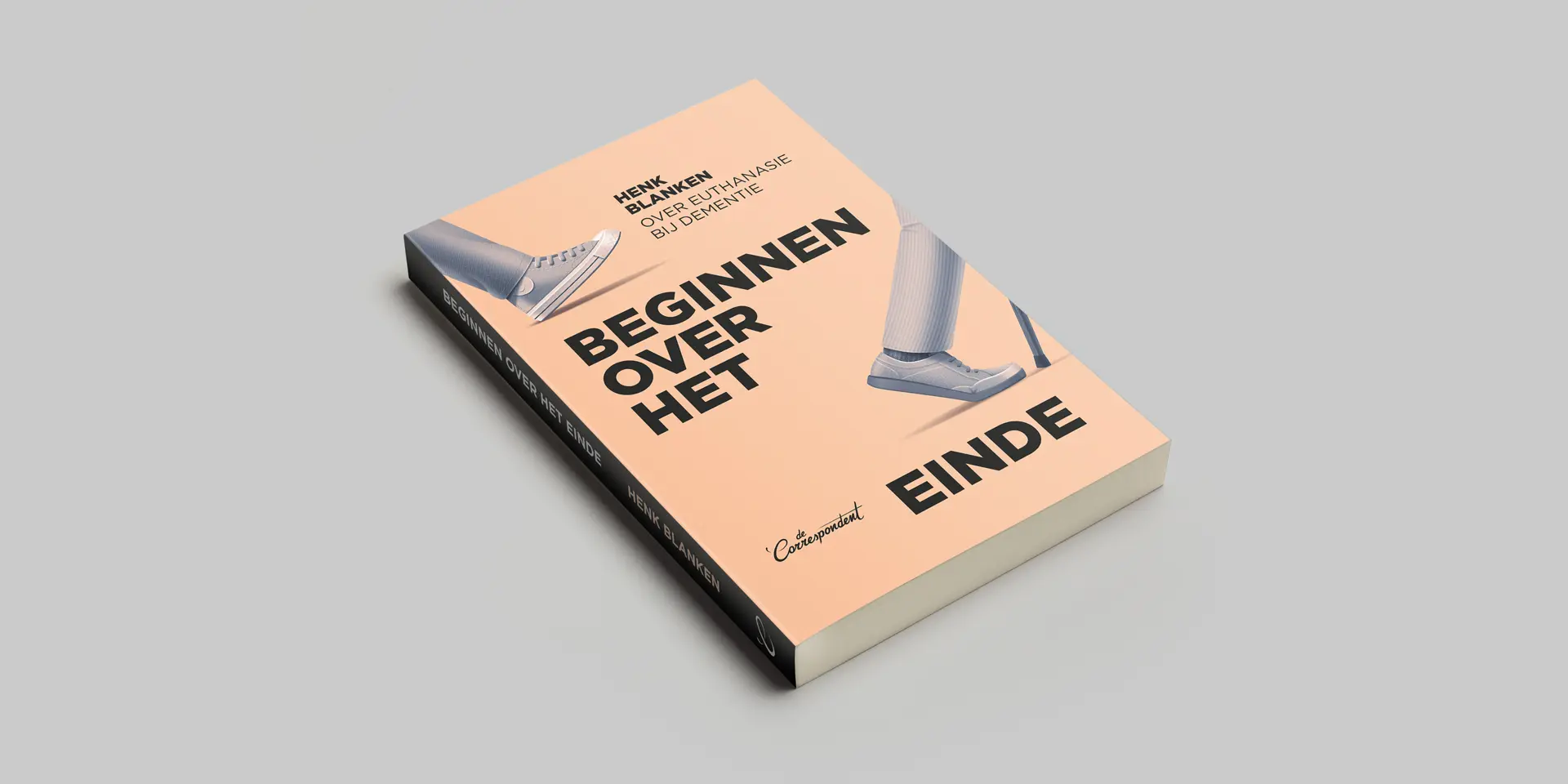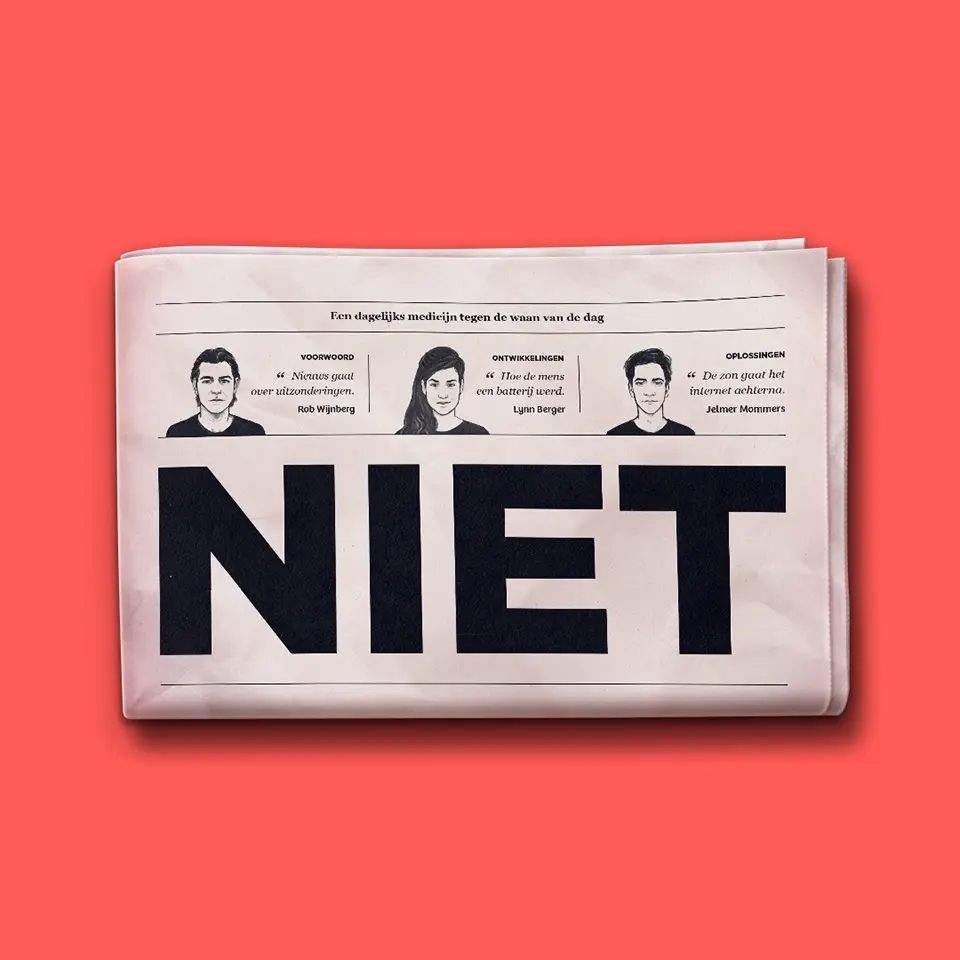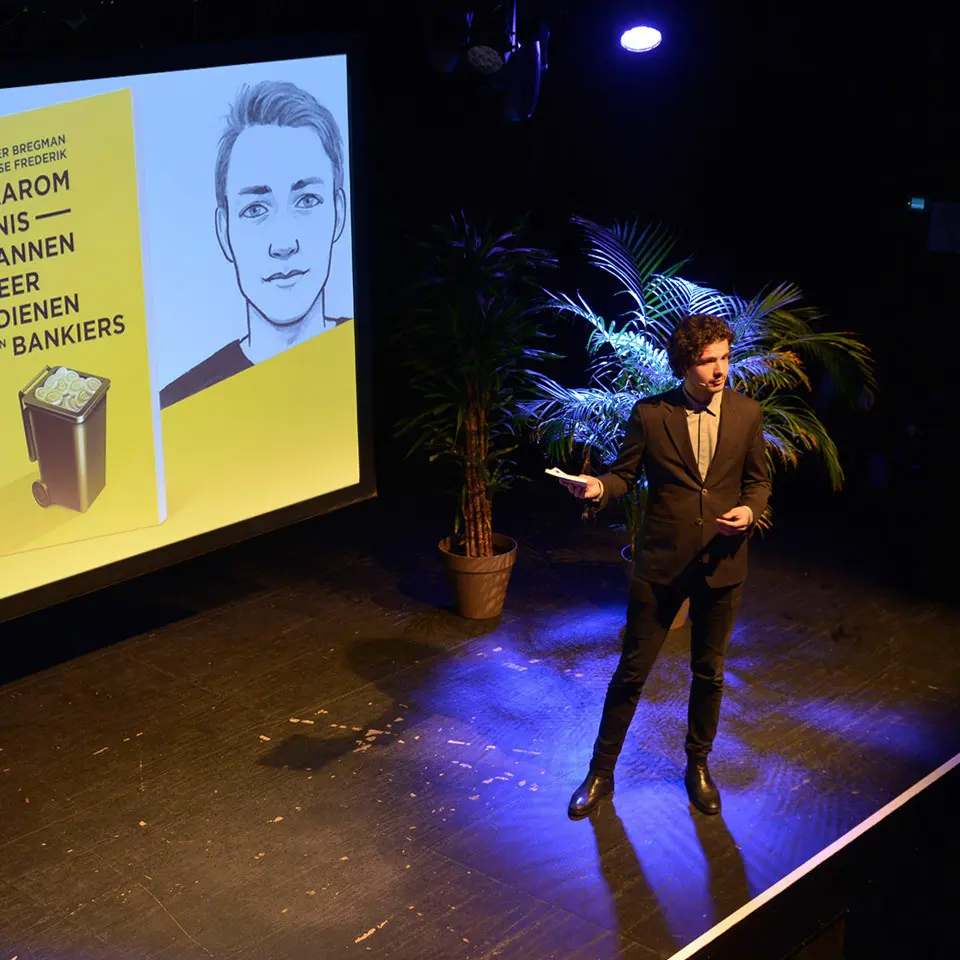Although our news start-up De Correspondent is fully digital, we believe every story deserves the best possible platform. And sometimes that platform is a good old-fashioned paperback. Since 2013, De Correspondent has published ten print books, all co-designed with Momkai.
National bestsellers
De Correspondent is an ad-free digital platform that focuses on the foundational, not the sensational. We equip our correspondents to carry out in-depth research by giving them time, resources, and access to the expertise of our 60,000 paying members.
Sometimes their research evolves into stories that work best as books. De Correspondent’s ten books have all become national bestsellers in the Netherlands. The first, Utopia for Realists, has been published in 30 territories worldwide.


A series for sharing insights
Our books form a series. All nonfiction, they share a fundamental purpose: to discuss everyday reality while introducing surprising new insights.
Their distinctive designs express the absurdity of reality, which each book exposes in one way or another. Each cover deploys a single striking illustration that conveys the central concept instantly, so it stands out in bookstores without screaming for attention.
“Human kind”
Dutch title: “De meeste mensen deugen”
German title: “Im grunde gut”
In this major book, internationally bestselling author Rutger Bregman shows how believing in human kindness and altruism can be a new way to think – and act as the foundation for achieving true change in our society.It is time for a new view of human nature.
“The water comes”
Dutch title: “Het water komt”
If there’s one Dutch story that needs to be told, it’s — the story of Johan van Veen. Engineer and father of the Delta-plan. One of the greatest Dutchmen of all time, but hardly anyone knows him. Johan’s story is the story of the Netherlands. A story that since the 1953 flood disaster in the Netherlands has been forgotten but is – with rising sea levels – now more relevant than ever. The book shows: we can fight the battle against water again.
"The right of the fastest"
Does a deer cross our road or do we drive straight through his forest? How come we have to press a button if we want to cross the street? And why do we travel faster and faster, but don't we get home a second earlier?
From traffic jams to bicycle highways, from speed bumps to shared cars: how we move has an enormous influence on the layout of our streets, our cities and our society. It even determines how we interact with each other.
In this book, journalist Thalia Verkade and scientist Marco te Brömmelstroet look for an answer to that one important question: whose street does it belong to? They discover that traffic has taken over our public space - and show that a completely different layout is possible.
“Beginning of an end”
Dutch title: “Beginnen over het einde”
Nowhere do you die as pleasantly as in the Netherlands. Unless you’re demented. Because even if the law allows it, no doctor will help you perform euthanasia... if you don’t understand what’s going on.
Why is euthanasia so difficult in dementia? And how can we make better arrangements? In this book, Henk Blanken shows how important it is to start the conversation on time. With your loved ones and with your doctor. So that you won’t die too soon, but also not too late.
“Americans don't walk”
Dutch title: “Amerikanen lopen niet”
No country is covered as much by the news as the United States. We follow the politics and media closely and know New York and Hollywood from the movies. But when Arjen van Veelen moves to the forgotten city of St. Louis, he is shocked: this is a rich third world country. To understand today’s America, you have to be in St. Louis. The gap between rich and poor, black and white, city and countryside is nowhere as wide as there. In this book, he shows America as you rarely see it, and brings it surprisingly close.
“The Second one”
Dutch title: "De Tweede"
It’s an often neglected question, but one many of us will face: what are the implications of having a second child? In this Dutch-language book, correspondent Lynn Berger explores the implications of growing your family.
"Utopia for Realists"
Dutch title: "Gratis geld voor iedereen"
In our first book, correspondent Rutger Bregman turns all your cherished beliefs upside down and makes you realise that a world without poverty, borders, and even war is truly possible.
"So You Think You Have Nothing To Hide…"
Dutch title: "Je hebt wél iets te verbergen"
In this Dutch-only book, correspondents Maurits Martijn and Dimitri Tokmetzis demystify the surveillance industry that lives in your smartphone, web browser, and flatscreen TV. Big data is watching you.
“This Was Not the News”
Dutch title: “Dit was het nieuws niet”
This Dutch-only book is a compilation of stories from more than 20 reputable correspondents. These stories are not often covered as part of the daily news grind, but give you a better understanding of how the world works.
"Why Garbage Collectors Should Earn More Than Bankers"
Dutch title: "Je hebt wél iets te verbergen"
In this Dutch-only book, correspondents Jesse Frederik and Rutger Bregman ask the simple, intriguing question: do people earn what they should? (Spoiler alert: not even close.)
De Correspondent & Momkai
De Correspondent was co-founded by Momkai’s founder, Harald Dunnink, and its CTO, Sebastian Kersten, along with editor-in-chief Rob Wijnberg and publisher Ernst-Jan Pfauth.
Since its successful launch, which set a world record for journalism crowdfunding, the online platform has acquired over 60,000 members, who happily pay for quality investigative journalism.
If you have an idea worth spreading, we’ll help it find its rhythm.
Design makes ideas move. From page to stage, from readers to members, from one country to the next.












































































